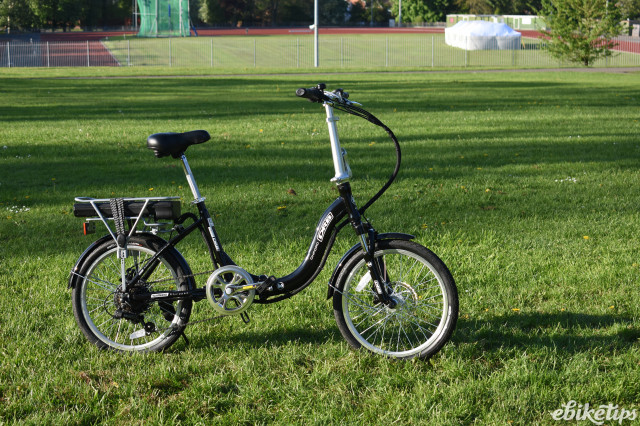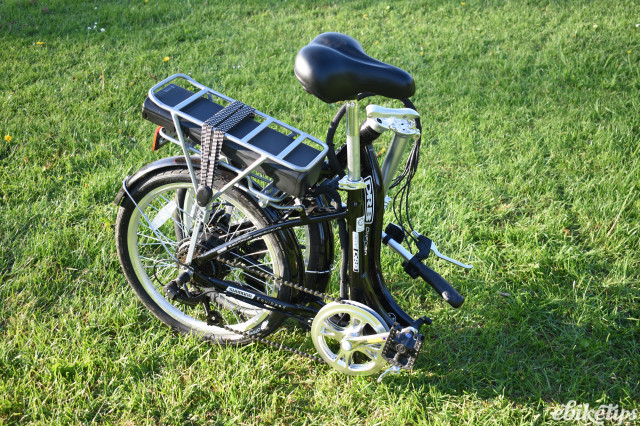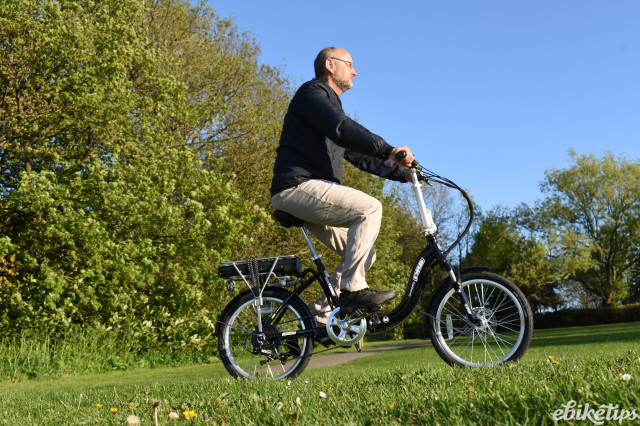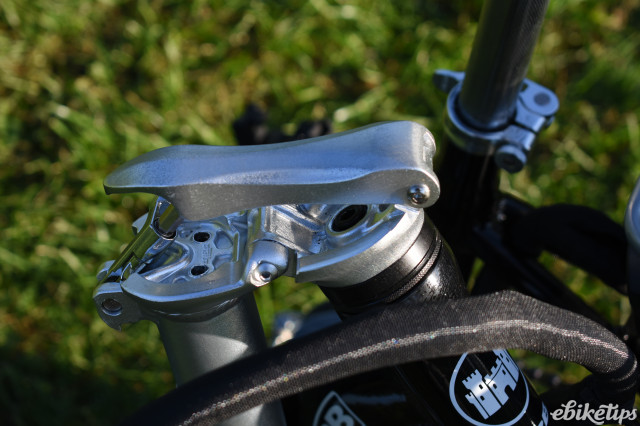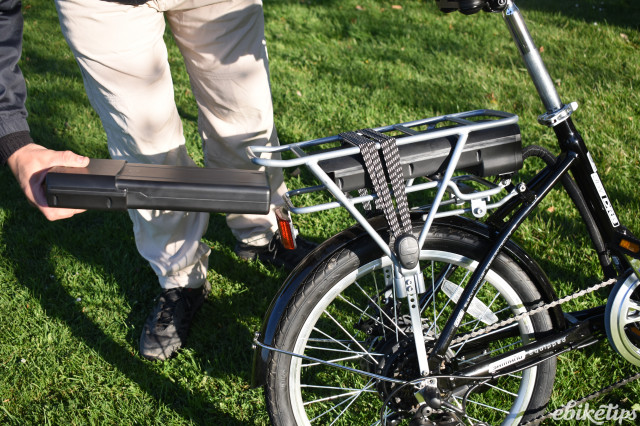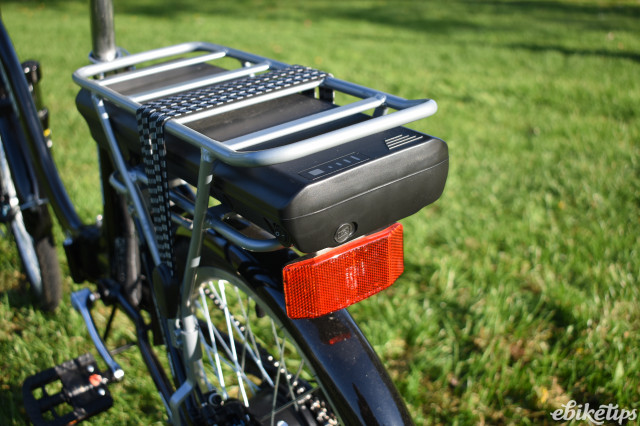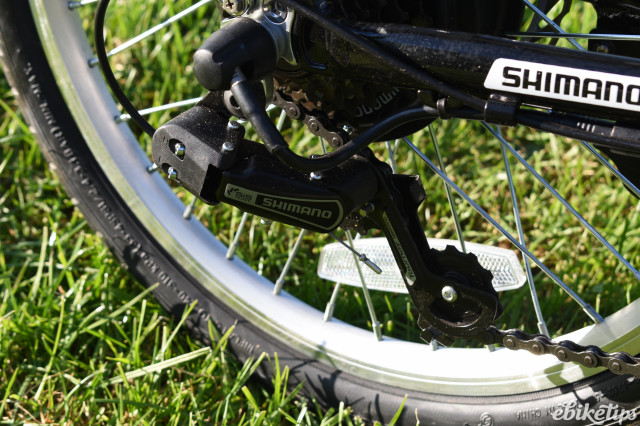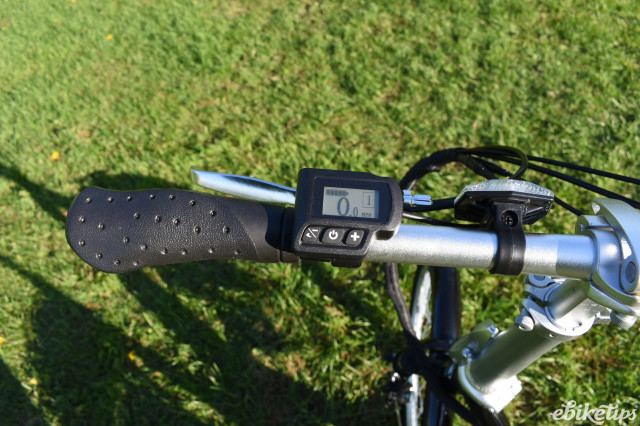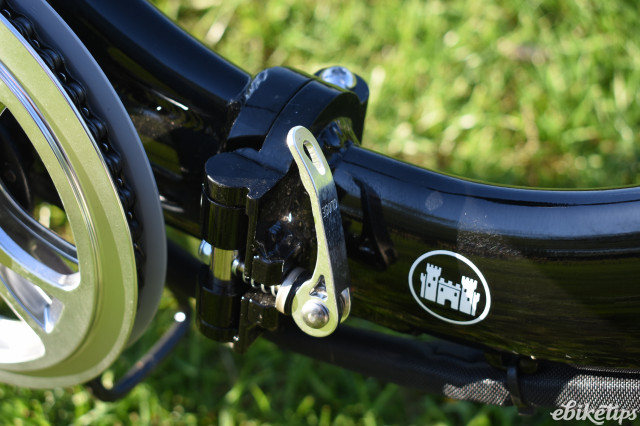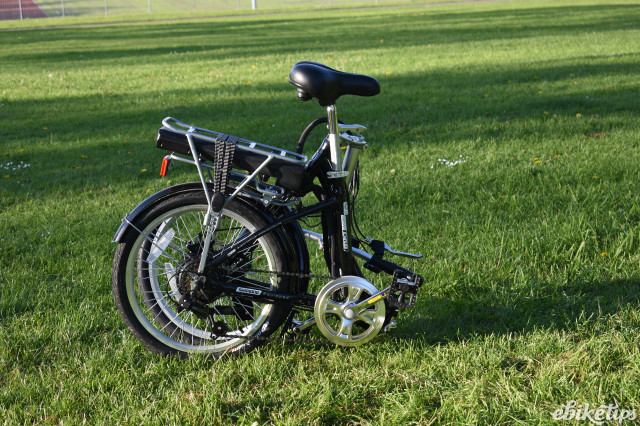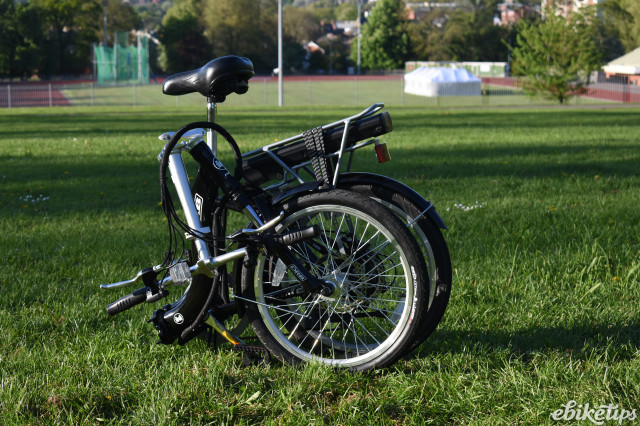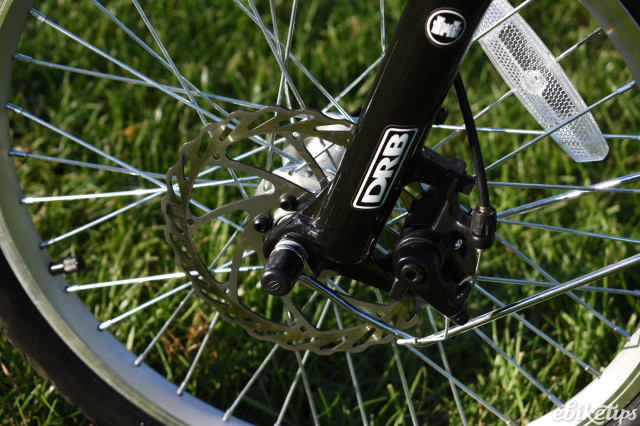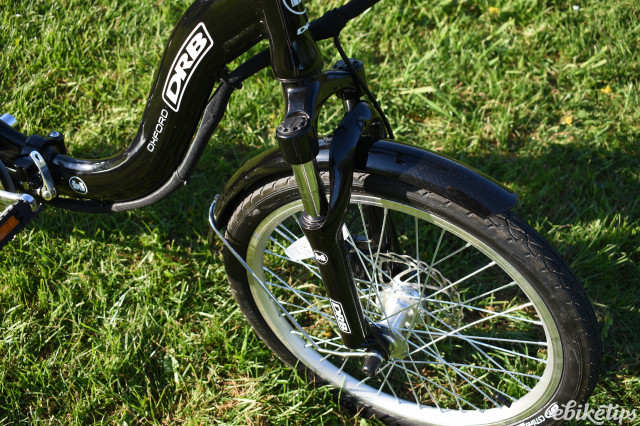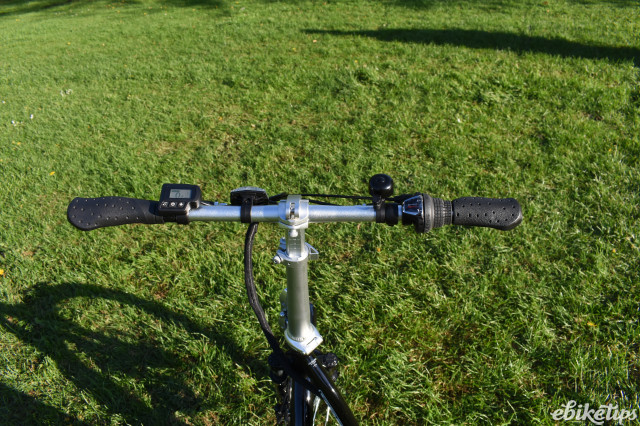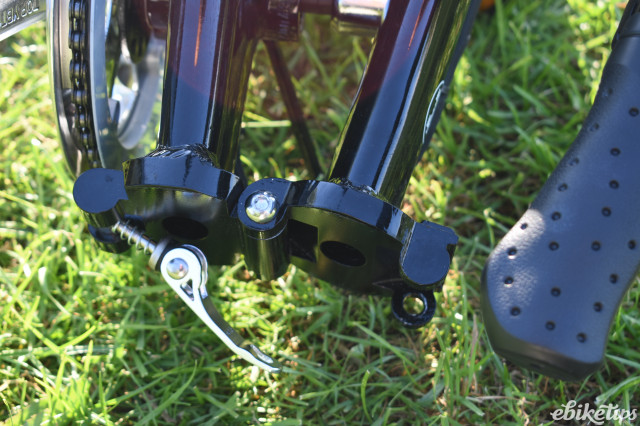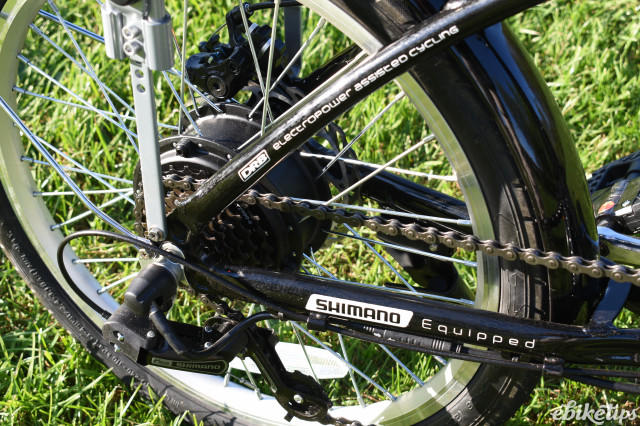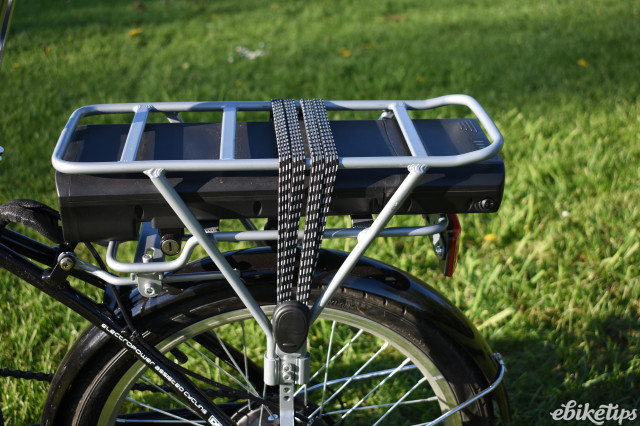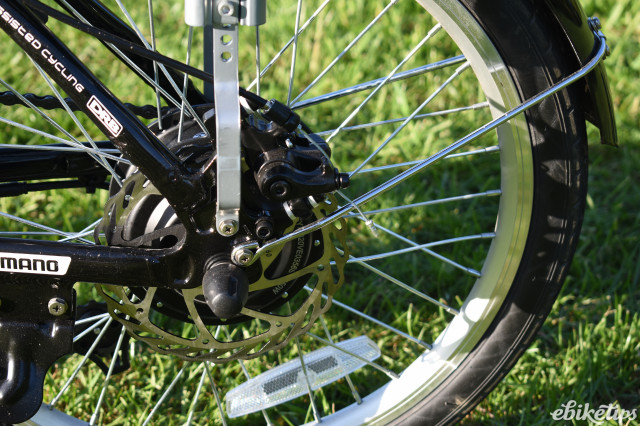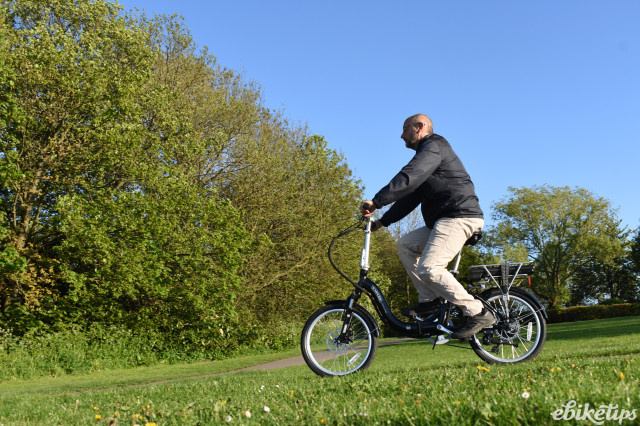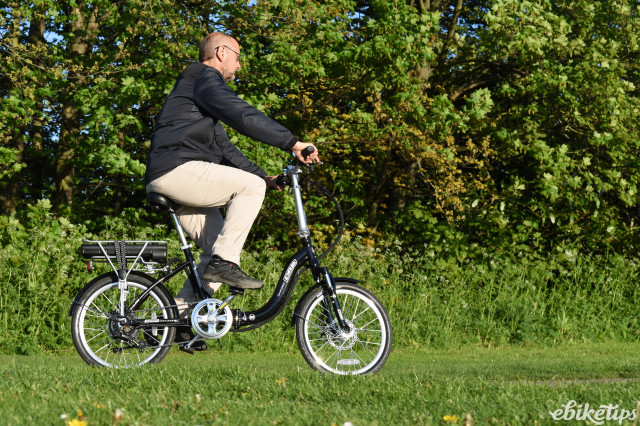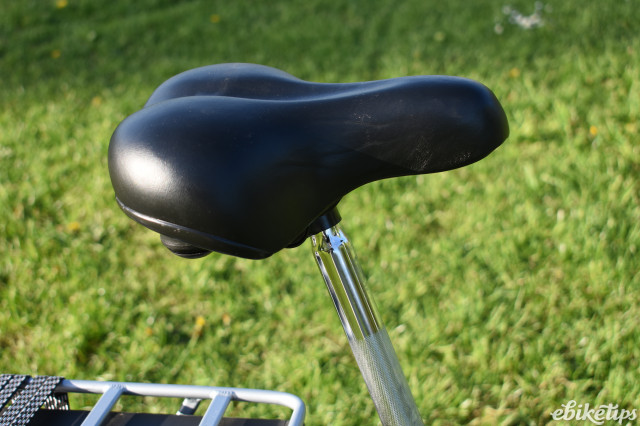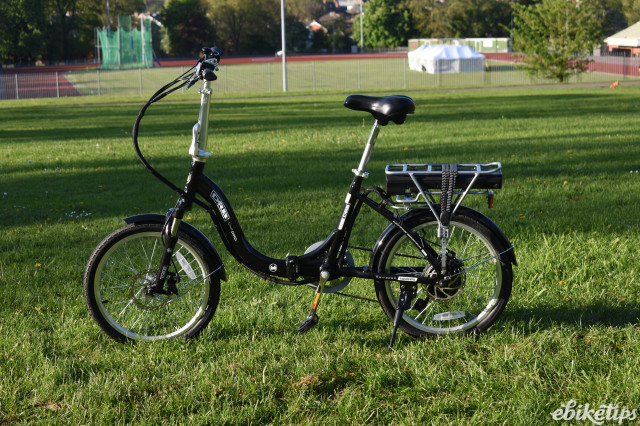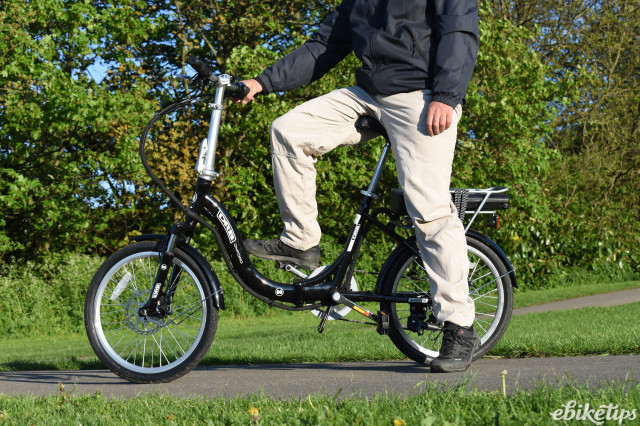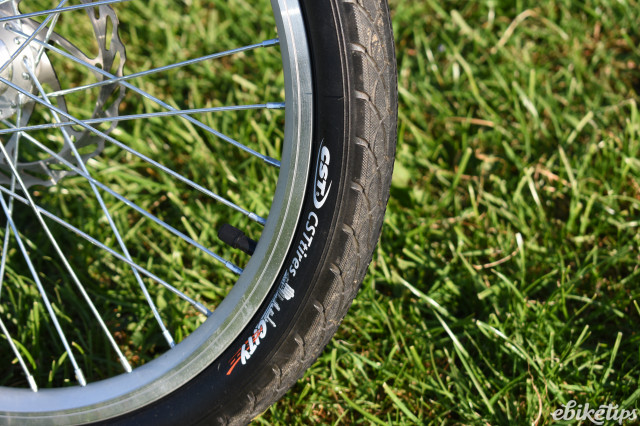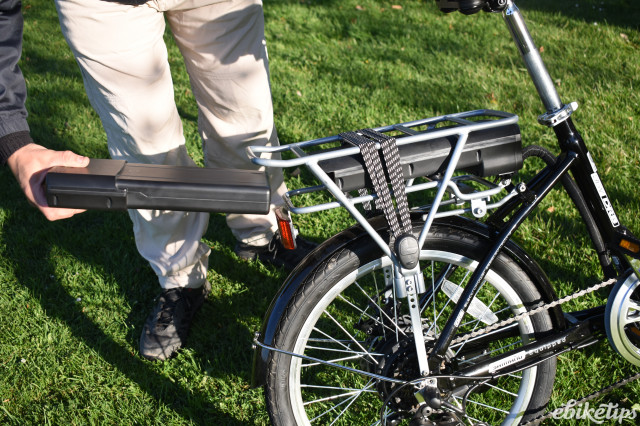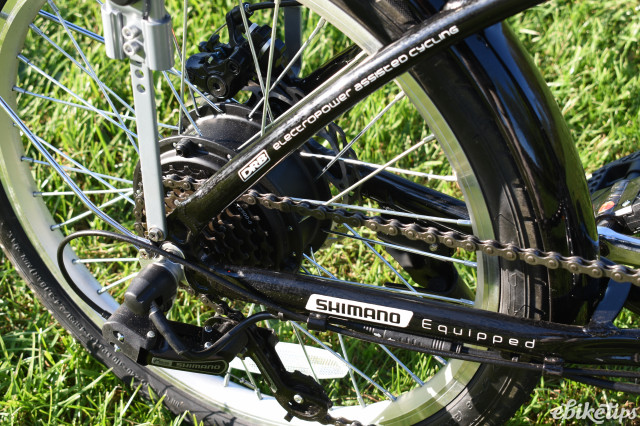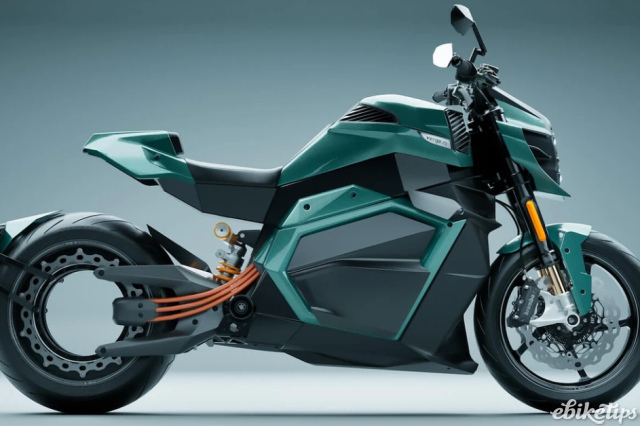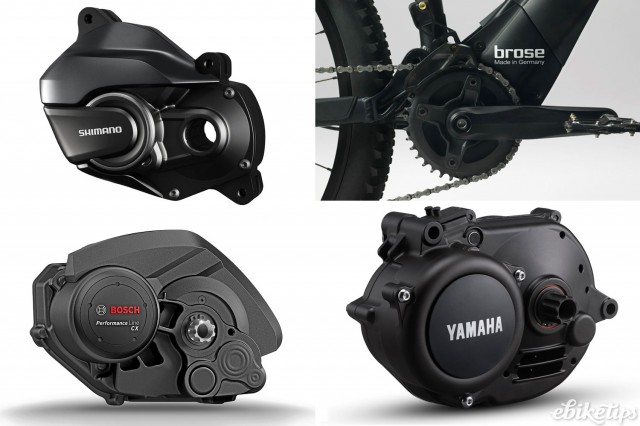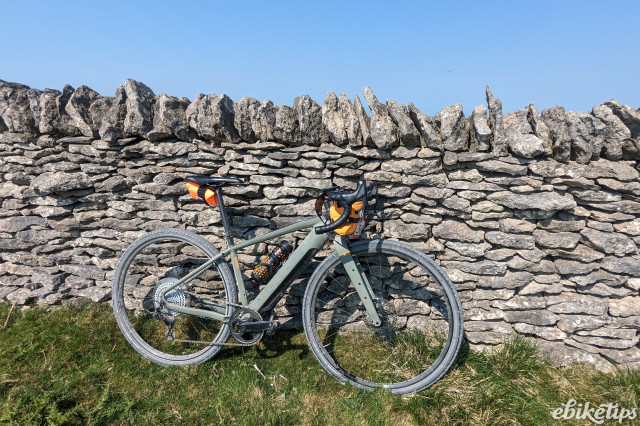Dallingridge Oxford
Overview
- Outstanding value
- Good sized battery
- Not a particularly neat fold
I've already reviewed two of Dallingridge's four model range of budget e-bikes. I found city bike Harlow comfortable, practical and good value, whilst trail bike Coniston was similarly dependable, practical and well-priced. The Oxford is the firm's 20"-wheeled electric folder.
The Dallingridge Oxford comes with a 504Wh rear rack-mounted battery (a smaller option is available for £999), cable operated disc brakes, 6-speed Shimano Tourney derailleur gears and budget front suspension. This is rounded off with mudguards and a kickstand. It's a pity Dallingridge couldn't just go the whole hog and include hardwired lights too to make it a complete commuting package.
The folding design is of the entirely standard fold in half type and it's a bit disappointing to see no means of securing the two halves together once folded - though as we describe in the performance section below, the fold is certainly one of the better ones out there in terms of heavyish budget folders.
Talking of weight, the Oxford came in at exactly 22kg on our scales, which is probably a little lighter than you would expect for a well-equipped budget e-folder with a good sized battery. If you remove the battery, you get a slightly more manageable 19.6kg folded package.
Performance
The Oxford springs straight out of the blocks as soon as you start pedalling. This is thanks to the 12 magnet cadence sensing, which means the motor kicks in almost as soon as the cranks turn. There are three power levels with the bottom two speed limited and the third one whizzing you up to the max issisted limit of around 16mph. There is no 'cut in, cut out' syndrome either and it's a nice bike to ride with no power. The tyres are free-rolling 20"x1.75" CST City models and there is little appreciable drag from the geared rear hub motor.
Add in the agile but stable handling and it's a great e-bike to ride all round. There is is some height adjustment on the handlebars, though this comes at the expense of a little bit of flex and the short reach from seat to bars may not suit much bigger riders. I felt it easily accommodated my 5ft8in frame. The super comfortable budget saddle and upright riding position together made for a very relaxed ride feeling.
If I was being picky I would highlight a slightly rattly battery housing and the fact that the heavy front suspension forks could just as easily have been replaced with solid ones and larger volume tyres without any loss of comfort or performance - and possibly even a performance benefit.
The Oxford's performance up my standard 0.75 mile hill climb was right in the middle of the range of e-bikes that have previously negotiated it, which is excellent for a budget model. The motor stormed away on the moderately hilly sections and slowed by a couple of mph on the steepest bits where there was a slight headwind. On my ultra steep test climb, it chugged up at about 6mph. This is relatively slow but the low gearing meant the physical effort needed was only moderate. In other words, this is a very decent hill climber, especially for a hub motor with cadence sensing (a less sophisticated system compared to pricier torque sensing machines).
Our range test returned an estimate of 30 miles over hilly roads with a small commuting load of 10kg or so on top of a 68kg rider weight. Like much of the rest of the Oxford's performance, this is probably about as good as you will get from a budget hub motor system.
The unbranded cable operated disc brakes felt a little spongy at first but use and a bit of fiddling with the cable barrel adjusters meant they improved considerably. The shifting of the very budget Shimano Tourney derailleur gears was as dependable as ever and as with the other bikes in the range the rotary shifting was intuitive and very practical.
The folded package of 86 x 65 x 47 cm is pretty bulky but it's not the heaviest and there is a stand underneath the bottom bracket that helps the folded package stand upright OK, as long as you bungee the two bike halves together. Whilst it's never going to be in the same league as Brompton or FLIT-16 for compact, quick and secure folding it's certainly one of the better examples of its kind. If you want a lightweight e-folder you are looking at more than double the price of the Oxford for a machine that weighs 15kg or less and will have a smaller battery.
Value for money?
There's a fair number of electric folders available around the £1,000 price mark, but most lack the combination of a largish battery and plentiful equipment that the Oxford boasts.
If you desire a low step-through frame with integrated battery, take a look at the pricier Alba Fold X, or if you can live with single-speed gearing and a smaller battery, take a look at the excellent throttle-equipped MiRider.
If you want a similar spec of machine that's a step up in quality, the Eovolt Afternoon we reviewed recently is worth a look. This has got a similar sized battery and lights and has a much nicer finish in many respects - but it is £1,000 more. Whilst Decathlon usually beats similar e-bikes hands down when it comes to bang for your buck, the only Btwin e-folder available at the time of writing was the cheaper 500E, which has a smaller battery and no rack.
In short, the Oxford continues Dallingridge's tradition of offering practical, well-performing e-bikes that represent value for money.
